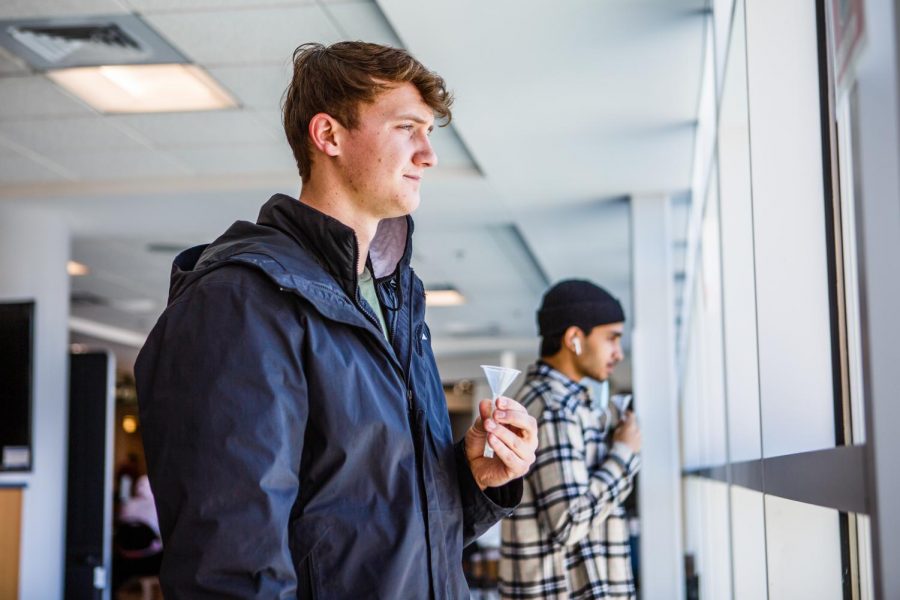Contagious variant raises COVID-19 cases on campus
University student Bryce Tharp takes a COVID-19 test at the ARC on Feb. 1. The number of B.1.1.7 variant cases is rising in Champaign County.
Apr 5, 2021
Champaign County is seeing a steady increase in positive cases of the significantly more contagious strain of COVID-19, the B.1.1.7 variant.
The contagion with multiple strains that originated in the United Kingdom is making up 50% of all positive cases, some days even more, according to Nigel Goldenfeld, professor in Engineering.
Goldenfeld is a part of the team of scientists who have worked to create and analyze multiple COVID-19 pandemic models for the state of Illinois.
Goldenfeld was one of the many scientists who, in light of the spread of COVID-19, joined the COVID-19 task force to help evaluate transmission rates and containment efforts through data modeling.
“There is a feature that we can exploit in the saliva test to see if cases are likely to be B.1.1.7, and so far, most of the cases are B.1.1.7 on campus and in the general community,” Goldenfeld said.
National statistics published by the Centers for Disease Control and Prevention show that there are 12,505 reported cases of the B.1.1.7 variant in comparison to other variants that have no more than 330 cases, making the B.1.1.7 variant more widespread and contagious.
The state of Illinois has about 151 to 300 cases statewide, whereas now more than half of the Champaign County positive cases are of the B.1.1.7 strain.
Goldenfeld also stated the likelihood of the B.1.1.7 variant becoming the dominant strain in the next coming weeks is very high.
The Champaign-Urbana Public Health District has been working with the University in anticipation of the spread of B.1.1.7, with about 200 cases detected on campus, as reported by epidemiologist and deputy administrator of CUPHD, Awais Vaid.
“The prediction put out by the CDC that claims the B.1.1.7 variant will be the dominant variant by the end of March is catching up in the Champaign community,” Vaid said.
Vaid said that because of the relaxed restrictions on campus and in the general Champaign-Urbana area, cases are steadily increasing. Also because of the heavily diversified population with students from all over the world on campus, the B.1.1.7 variant is most likely being carried from whoever catches the virus.
“We know that COVID is not stopping and that the variant is much more contagious and spreads at a faster rate,” Vaid said.
However, the increase in the vaccinated population is helping to slow the spread of the virus, according to Vaid.






